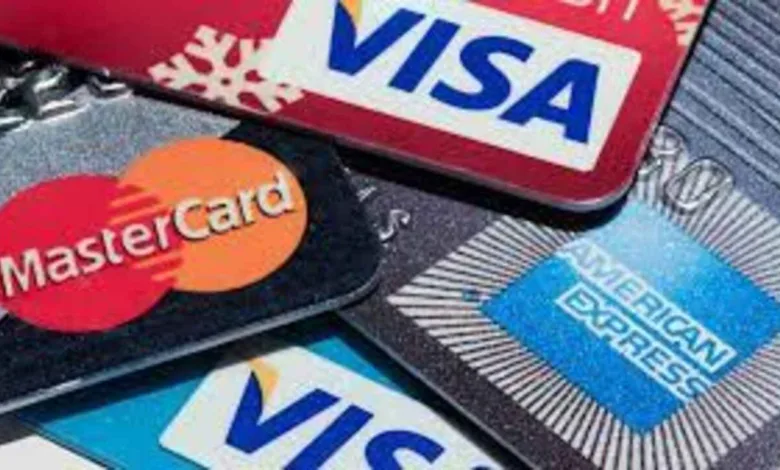Credit Card

Credit Card
Credit Card In today’s world, credit cards play a crucial role in managing finances and facilitating transactions. However, understanding how credit cards work and using them wisely is essential to avoid falling into debt traps. In this article, we’ll delve into everything you need to know about credit cards, from their benefits to their potential pitfalls, empowering you to make informed financial decisions.
Exploring the Basics of Credit Cards
Credit cards are convenient financial tools that allow users to borrow money from a bank or financial institution to make purchases. Unlike debit cards, which draw funds directly from your bank account, credit cards provide a line of credit that must be repaid with interest if not paid in full by the due date.
Types of Credit Cards
- Rewards Credit Cards: These cards offer incentives such as cashback, travel rewards, or points for every dollar spent.
- Secured Credit Cards: Designed for individuals with limited or poor credit history, secured cards require a security deposit that serves as collateral.
- Balance Transfer Credit Cards: These cards allow you to transfer high-interest debt from one card to another with lower or zero interest rates for a limited time.
- Student Credit Cards: Tailored for college students, these cards often come with lower credit limits and perks like rewards for good grades.
Benefits of Using Credit Cards
Credit cards offer several advantages when used responsibly:
- Convenience: With a credit card, you can make purchases online or in-store without carrying cash.
- Build Credit History: Responsible credit card usage can help establish and improve your credit score, making it easier to qualify for loans or mortgages in the future.
- Consumer Protections: Many credit cards offer purchase protection, extended warranties, and fraud liability coverage, providing peace of mind for cardholders.
- Rewards and Perks: Rewards credit cards allow you to earn cashback, travel miles, or other perks based on your spending habits.
Risks and Pitfalls of Credit Cards
While credit cards offer numerous benefits, they also pose certain risks if not managed properly:
- High-Interest Rates: Carrying a balance on your credit card can result in hefty interest charges, especially if you only make the minimum monthly payments.
- Debt Accumulation: Easy access to credit may tempt individuals to overspend beyond their means, leading to debt accumulation and financial strain.
- Credit Score Impact: Late payments or maxing out your credit limit can negatively impact your credit score, making it harder to qualify for future loans or credit cards.
- Fees and Penalties: Credit cards may come with annual fees, balance transfer fees, late payment fees, and other penalties, adding to the cost of borrowing.
Tips for Using Credit Cards Wisely
To make the most of your credit cards while avoiding common pitfalls, consider the following tips:
- Pay Your Balance in Full: Whenever possible, pay your credit card balance in full each month to avoid interest charges.
- Monitor Your Spending: Keep track of your credit card transactions and set a budget to avoid overspending.
- Pay On Time: Make timely payments to avoid late fees and protect your credit score.
- Use Rewards Wisely: Redeem credit card rewards strategically to maximize their value, whether through cashback, travel, or other perks.
- Avoid Cash Advances: Cash advances typically come with high fees and interest rates, so it’s best to avoid them whenever possible.
FAQs (Frequently Asked Questions)
Q: What is a credit limit?
A: A credit limit is the maximum amount of money you can borrow on your credit card. It is determined by the credit card issuer based on factors such as your credit history, income, and debt-to-income ratio.
Q: Can I increase my credit limit?
A: Yes, you can request a credit limit increase from your credit card issuer. However, the decision to raise your limit depends on various factors, including your payment history and income.
Q: How does a credit card affect my credit score?
A: Your credit card usage, payment history, and credit utilization ratio all impact your credit score. By using your responsibly and making timely payments, you can improve your credit score over time.
Q: What should I do if my credit card is lost or stolen?
A: If your credit card goes missing or is stolen, contact your card issuer immediately to report it. They will deactivate the card and issue a replacement to prevent unauthorized transactions.
Q: Can I use a credit card to build credit if I have no credit history?
A: Yes, using a responsibly is one of the most effective ways to establish a credit history. Consider applying for a secured or becoming an authorized user on someone else’s card to start building credit.
Q: What is a grace period on a credit card?
A: A grace period is the period between the end of a billing cycle and the due date for payment. During this time, you can pay your balance in full without accruing interest on new purchases.
Conclusion
Credit cards offer unparalleled convenience and flexibility when it comes to managing finances and making purchases. By understanding how credit cards work and following best practices for responsible usage, you can leverage these financial tools to your advantage while minimizing risks. Remember to pay your balance in full, monitor your spending, and use rewards wisely to maximize the benefits of your credit cards.
Helpful Sources





